The Lifetime movie Yoga Teacher Killer: The Kaitlin Armstrong Story tells the harrowing story inspired by real events in Austin, Texas. In 2022, up-and-coming cyclist Moriah “Mo” Wilson was found shot dead in her home, with suspicion quickly falling on Kaitlin Armstrong. Armstrong had been in an on-again, off-again relationship with fellow cyclist Colin Strickland but grew increasingly jealous as he bonded with the younger Wilson.
Portrayed by Caity Lotz, Armstrong is a yoga instructor balancing a tumultuous personal life with her career. Her hopes of settling down with boyfriend Strickland, played by Kyle Schmid, are threatened by his growing closeness with newcomer Wilson, portrayed sympathetically by Larissa Dias. As Strickland backtracks on commitments to Armstrong, her envy and insecurity spiral out of control. When she discovers the two together, in a horrifying act, Armstrong takes Wilson’s life.
The film unpacks Armstrong’s volatile mental state and the toxic factors fueling her obsession. While not condoning her heinous crime, it offers a cautionary portrayal of possessive love turned deadly. Overall, Yoga Teacher Killer succeeds in bringing disturbing real-life drama to the screen with emotionally potent performances anchoring its unsettling tale.
The Tangled Love Triangle
This film delves deeply into the intertwining relationships at its core. Kaitlin Armstrong is a yoga instructor in her mid-thirties, struggling with her longtime boyfriend Colin’s waning commitment. Portrayed with passion by Caity Lotz, she pours her whole self into managing his cycling career in hopes of a future together.
Enter Moriah Wilson, played with charm by Larissa Dias. She’s a rising star who catches Colin’s eye, and the two bond over their sports. Naive to the complicated history between Colin and Kaitlin, Moriah treats them both with care. But Colin’s mixed signals raise doubts in her mind.
Kyle Schmid brings nuance to Colin, showing both his care for these women and his inability to let go of what’s easy. As Kaitlin senses her loss of control, her coping mechanisms grow unhealthy. She hacks accounts, tracks locations, and gets unwanted treatments to desperately rekindle their romance.
The storyline captures both the slow boil of mental unraveling and the jolt of true danger. Subtle moments portray an ordinary woman pushed to her limit, though nothing can excuse the act that follows. It’s a sobering tale of how jealousy and obsession can transform relationships into something toxic and tragic. The performances breathe life into these complex, imperfect characters to unfold real human drama from strikingly sad circumstances.
Committed Cast Carries Complex Characters
Caity Lotz delivers a truly unsettling performance as Kaitlin Armstrong. Under Lotz’ skilled acting, Kaitlin seems like a regular woman whose insecurities and bad decisions lead down a disturbing path. She crafts a character both sympathetic yet frightening in her obsession. Lotz invites understanding of Kaitlin’s humanity even as her actions become increasingly volatile.
Kyle Schmid takes on the difficult role of Colin Strickland, neither hero nor villain but a flawed man. Schmid shows both Colin’s affection for these women and his self-absorbed tendencies pulling him between them. His nuanced performance brings a painful realism to this complex character.
Moriah Wilson, Larissa Dias imbues her with a sweet charm. Dias’ empathy makes Moriah’s brutal fate all the more tragic. Her ability to earn the viewer’s fondness makes the heartache of her loss deeply felt.
A special shoutout also goes to Monica Peter as Detective April Brown. Among spirited supporting roles, Peter grounds her character with steady reassurance, a welcome constant amid chaos unfolding.
Under director Katie Boland’s guidance, this cast brings an unsettling realism that lingers long after viewing. Their emotionally rich portrayals of imperfect people create a chilling yet prescient film from disturbing true events. Audiences will not soon forget these memorable performances in complex, compelling roles.
Guiding a Difficult Drama
Director Katie Boland faced no easy task in translating such a raw, real-life tragedy onto screens. From the opening scene, her unflinching direction grabs you—the murder itself rendered with visceral brutality. yet sensitivity toward the victim.
From there, Boland steadily reveals layers to each character. Through shifting scenery and subtle visual cues, the tightening coils of jealousy emerge. Cinematography casts Kaitlin’s worsening instability in an unsettling light. Music enhances tension without melodrama.
Production design immerses us in the world of elite athletics and Austin yoga culture. Locations breathe authenticity into settings like Colin and Kaitlin’s shared home, amplifying unease. Technical elements support nuanced performances without distraction.
Boland navigates complexity delicately. Neither demonizing the killer nor ignoring harm, she illuminates toxic influences through compelling storytelling. Granting audiences insight without condoning violence took nuance. The result feels not like sensationalism but a sobering cautionary drama that doesn’t flinch from life’s hardest lessons.
While the subject matter risks sensationalism, Boland’s vision prioritizes meaningful takeaways over shock value. Her steady guidance draws out raw humanity to transform trauma into catharsis through film.
Love Turned Lethal
This film delves deeply into the destructive themes of obsession and jealousy. Kaitlin becomes fixated on maintaining Colin’s love, neglecting her own well-being and identity. Her growing surveillance and dependency emerge as forms of domestic control over him.
While attempting to portray female empowerment, Kaitlin’s actions instead reflect how warped her view has become. From secretly getting cosmetic work to hoping a deadly act could win back her love, she grapples with toxic notions of what it means to keep a partner’s interest.
Nuanced performances reveal the sociological factors that eroded Kaitlin’s stability and sense of self-worth, independent of Colin. A tumultuous upbringing in high-pressure finance and an all-consuming relationship left her susceptible to spiraling jealousy as life’s milestones like parenthood seemed to drift away.
Colin too struggles with codependency, gleaning purpose from being needed yet unable to commit fully to either woman’s hopes. His faltering career and stringing them along amplified tensions to a boiling point.
Director Boland crafts a sobering proclamation of how readily jealousy, insecurity, and domestic control within relationships can morph even ordinary individuals into threats with tragic outcomes. Though sensitive to the reality of abuse dynamics, the film acknowledges no excuses for violence.
Ultimately, it presents a cautionary message: unchecked desperation for another’s affection often stems from our own neglect of self-care, purpose, and boundaries. True empowerment lies not in dominating another’s love but in finding strength within.
A Cautionary Tale of Obsession
Yoga Teacher Killer tells a chilling true crime story that joins a rich genre exploring humanity’s darker side. From works like Gone Girl to The Girl on the Train, such films take real atrocities and shape narratives to both entertain and impart insight.
This drama stands apart through nuanced direction that prioritizes understanding over sensationalism. Rather than glorify violence, Boland’s focus is revealing how ordinary relationships can transform intoxic codependency. She crafts compelling characters to haunt viewers long after with their very real struggles.
The themes of jealousy, desperation for affection, and blind obsession feel tragically prescient in an age where social media fuels insecurity. This film serves as a sobering reminder of how fury and panic left unchecked within fragile psyches can escalate to the point of destruction with just one bad decision.
What reverberates most is the preventable tragedy of a young life cut short due to toxic entanglements not her own. Yet the film finds empathy even for its most disturbed figure, perhaps prompting self-reflection in us all to cut off volatile influences before the unthinkable occurs.
To its credit, Yoga Teacher Killer conveys a potent message simply through absorbing storytelling that doesn’t preach so much as involve the viewer in its vulnerable humanity. One walks away considering how to foster healthy relationships and fortify inner security against whatever unwinds the threads of sanity. Its lessons linger in a place more impactful than any morals stated outright could achieve.
Worth the Watch, With Caution
In the end, Yoga Teacher Killer delivers a true crime story that, while entertaining, never loses sight of tragedy at its core. Director Boland balances compelling storytelling with care for the real victims, crafting a film that lingers in the memory.
For those drawn to the genre, this depiction of obsession turned lethal holds intrigue. Nuanced performances and glimpses into the psychological elements that eroded these people’s humanity satisfy curiosity about real cases. However, its darkness and unsettling subject matter mean this film is best suited to mature audiences.
Survivors of abuse may find parallels to relationships that compromise mental well-being, making it a tough watch. And while not entirely sympathetic, Kaitlin is portrayed as a vulnerable woman whose actions stem from ill-guided desperation rather than pure evil—a complexity that stays with viewers.
Overall, the unflinching narrative, anchored by powerful leads, makes for absorbing viewing and thought-provoking dialogue. But its sorrowful essence demands the right mindset and self-care for some. For those seeking more than surface entertainment, Yoga Teacher Killer transcends true crime tropes to leave a haunting impression of humanity’s fragility. It remains a film best approached with all the sensitivity its heavy themes require.
The Review
Yoga Teacher Killer: The Kaitlin Armstrong Story
In recreating a disturbing true crime tale with nuanced care, Yoga Teacher Killer proves a gripping drama that lingers in the memory long after viewing. While heavy subject matter demands discretion, Boland's unflinching direction and committed performances transform real tragic events into an impactful documentary-style film well worth watching.
PROS
- Compelling performances that bring the complex characters to life
- Attention to psychological depth enhances understanding of events.
- Tight direction keeps story suspenseful while respecting sensitivity of topic
- Rewards viewers seeking more than surface true crime entertainment
CONS
- Difficult subject matter requires discretion due to depiction of violence.
- Kaitlin's villainy risks trivializing trauma despite grounded portrayal.
- Moriah's story is overshadowed by dramatized focus on Kaitlin's demise.
- Lacks resolution or catharsis due to factual reenactment of open case
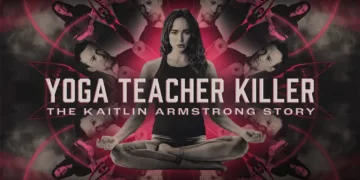








































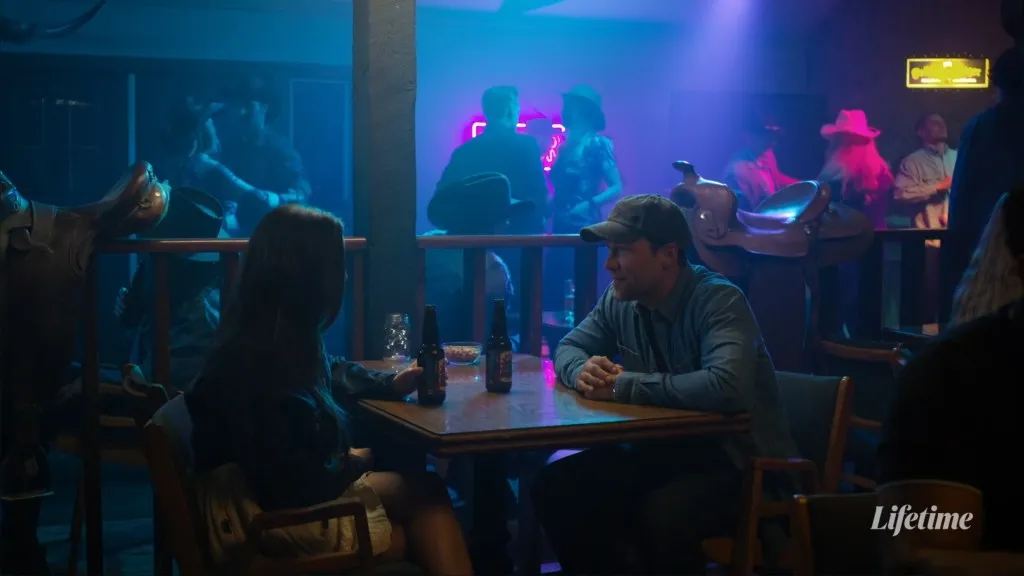
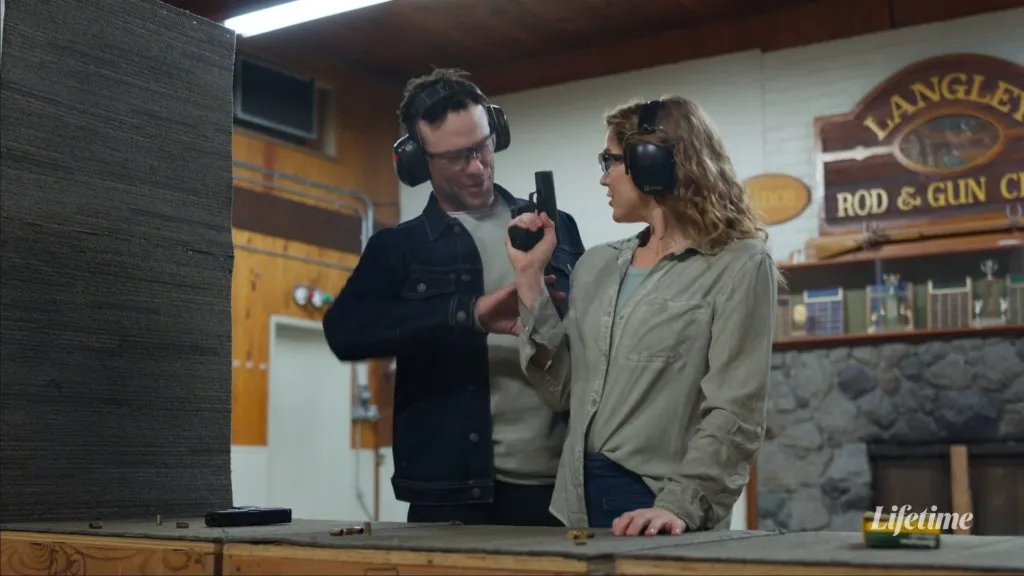

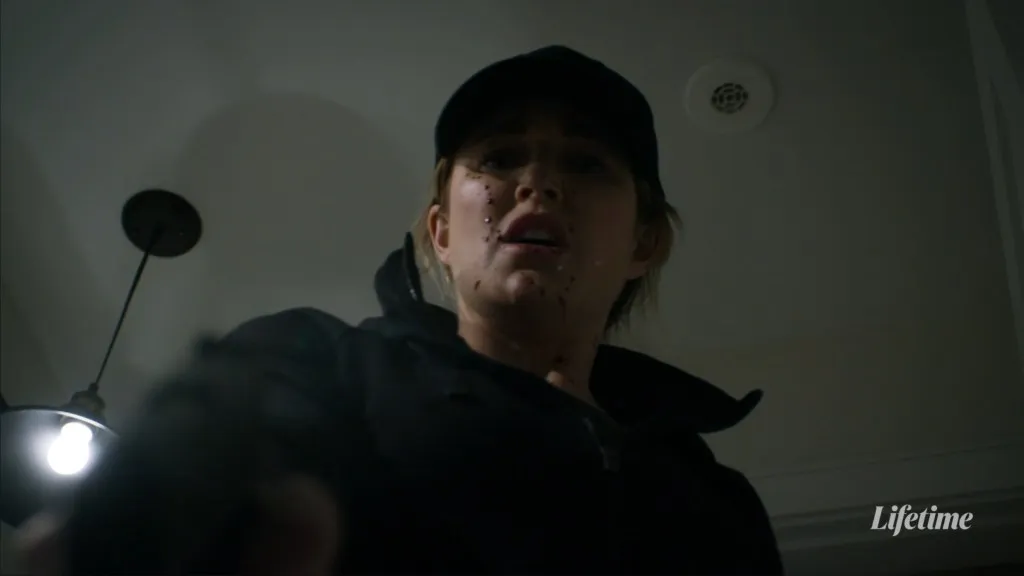
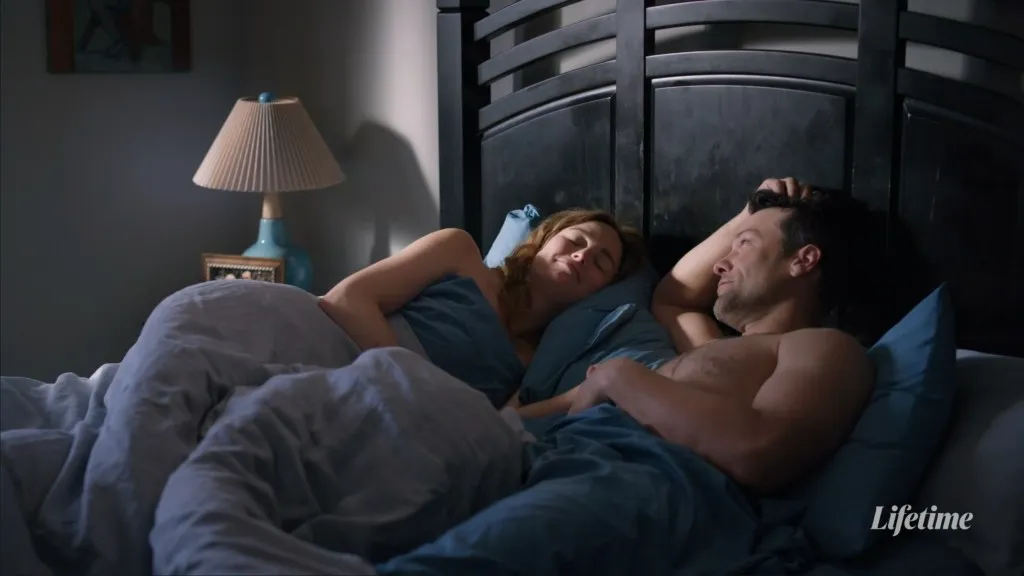








Discussion about this post